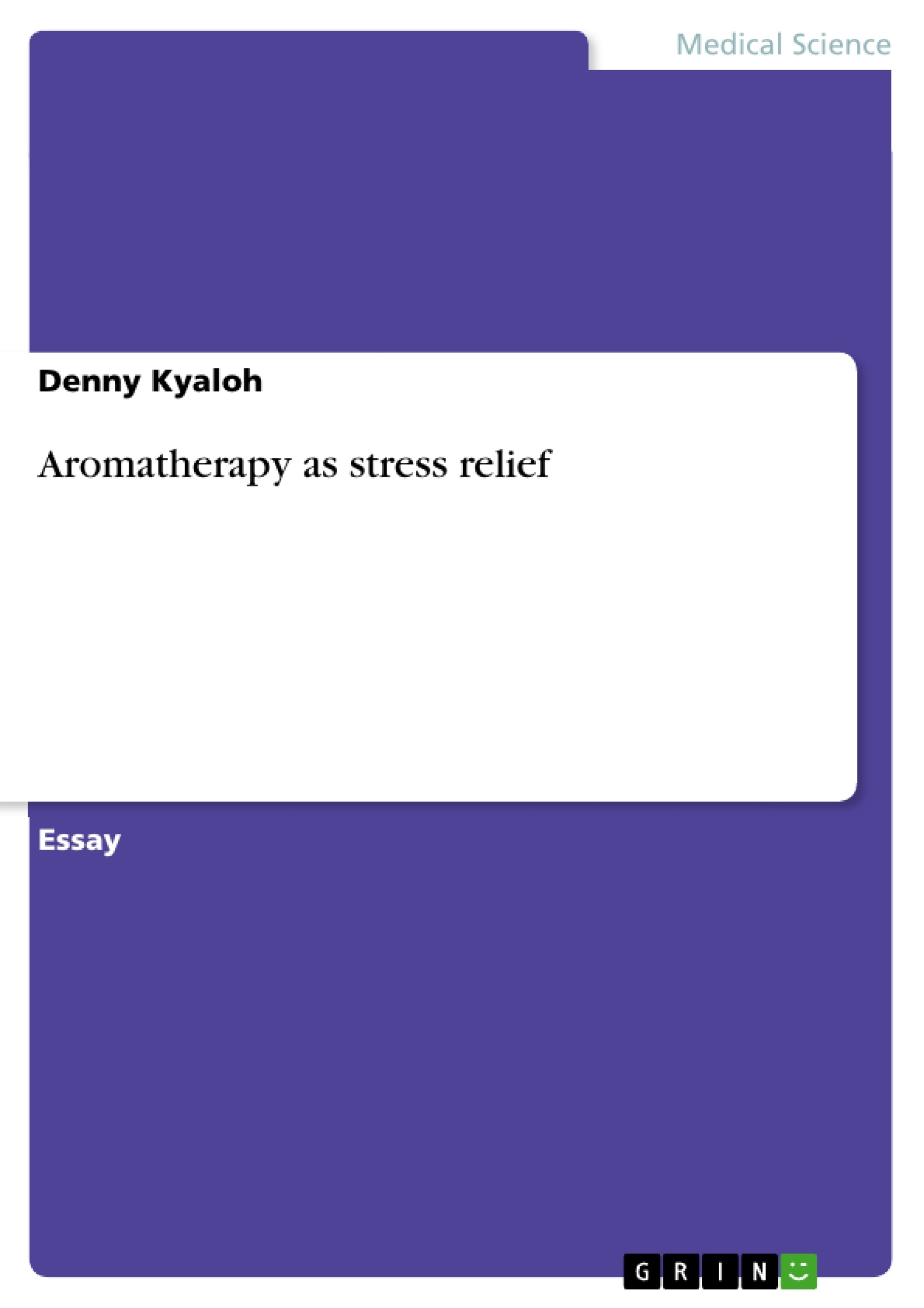The use of traditional medicine has not always been the only means to deliver healing and treatment. Many other methods and forms of medication have been used in various parts of the world for a long time. With the complexity of ailments and increase of the number of patients, doctors are now exploring the alternative forms of medication. One of these methods is aromatherapy. This form of alternative medicine is being embraced to deliver treatment to those that are heavily laden with stress and depression.
This paper takes a deep look at the various forms of research that have been published on the effectiveness of the treatment. Through the examination of the various literatures published by experts in the field, the paper shows why aromatherapy is becoming a widely accepted form of alternative medicine. The paper also explores the causes of stress and why stress is such a serious problem that needs the radical intervention of medical experts.
Inhaltsverzeichnis (Table of Contents)
- Introduction
- How Aromatherapy Works
- Effects of stress on the body
- Aromatherapy and mental health
- Modern research
- Evidence of effectiveness
- Side effects and complications of aromatherapy
- Caution
- Conclusion
- References
Zielsetzung und Themenschwerpunkte (Objectives and Key Themes)
This paper examines the use of aromatherapy as an alternative medicine for stress reduction. It explores the effectiveness of aromatherapy in managing stress levels, highlighting the research conducted on its benefits and potential side effects. The paper also discusses the impact of stress on the body and the growing need for alternative treatment options.
- The use of aromatherapy as an alternative treatment for stress
- The effectiveness of aromatherapy in reducing stress levels
- The physiological and psychological effects of stress on the body
- The growing acceptance of aromatherapy as a form of alternative medicine
- The potential side effects and complications of aromatherapy
Zusammenfassung der Kapitel (Chapter Summaries)
- Introduction: This section provides a general overview of aromatherapy and its historical use. It also highlights the rising prevalence of stress in modern society and the need for effective stress management strategies.
- How Aromatherapy Works: This chapter delves into the mechanisms of action of aromatherapy, explaining how aromatic plant oils interact with the body to induce relaxation and stress reduction.
- Effects of stress on the body: This section discusses the various ways stress affects the body, including its impact on physical health, mental well-being, and the immune system.
- Aromatherapy and mental health: This chapter explores the potential benefits of aromatherapy in managing mental health conditions, particularly those related to stress and anxiety.
- Modern research: This section reviews recent scientific research on the effectiveness of aromatherapy in stress reduction, highlighting both supportive and inconclusive findings.
- Evidence of effectiveness: This chapter presents evidence from various studies that support the use of aromatherapy as a complementary therapy for managing stress and promoting relaxation.
- Side effects and complications of aromatherapy: This section discusses the potential side effects and complications associated with aromatherapy, emphasizing the importance of responsible use and consultation with healthcare professionals.
- Caution: This section provides important cautions and considerations for those interested in using aromatherapy, including potential interactions with medications and the need for individual sensitivity.
Schlüsselwörter (Keywords)
Aromatherapy, stress reduction, essential oils, alternative medicine, mental health, stress management, relaxation, physiological effects, psychological effects, research, evidence, side effects, complications, caution.
Frequently Asked Questions
How does aromatherapy work for stress relief?
Aromatherapy uses aromatic plant oils that interact with the body and brain to induce relaxation and reduce physiological stress markers.
What are the common effects of stress on the body?
Stress can negatively impact physical health, mental well-being, and the immune system, leading to conditions like depression and exhaustion.
Is there scientific evidence for the effectiveness of aromatherapy?
Modern research provides both supportive and inconclusive findings, but many studies suggest its benefit as a complementary therapy for relaxation.
Are there any side effects or complications?
Yes, potential complications include allergic reactions and interactions with other medications; consultation with a healthcare professional is advised.
Why is aromatherapy becoming more popular?
Due to the increasing complexity of stress-related ailments, doctors and patients are exploring alternative medicines that complement traditional treatments.
- Quote paper
- Denny Kyaloh (Author), 2015, Aromatherapy as stress relief, Munich, GRIN Verlag, https://www.hausarbeiten.de/document/338007


